Dill is a well-known herb used in cooking. Originated in southwest Asia and then the Mediterranean area. Production of the spice is now done globally. Dill has long hollow stems and alternate finely divided tender leaves. These seeds develop at the end of blooms. These seeds change from light green to brown as the plant matures. The seeds smell of cumin, with an intense (described in taste as sharp, spices, bittersweet, and spicy trinity). Lacy and needle-like, the leaves pack a strong, enduring flavor.
There are many uses for dill leafy parts, fruits, and essential oils. Different sections of the plant are chiefly used as herbs or spices to flavor food. Dill is one of the leading culinary herbs, along with chives and parsley, in Central and Eastern Europe. Dill is freshly existent, and dried shoots of dill wither in taste. On the other hand, freeze-dried dill leaves still have their flavor for several months. Dill oil is obtained from the plant's leaves, stems, and seeds. Certain dill parts are additionally used in cosmetic items. They are distilled to produce seed oil, which is used in soap-making.
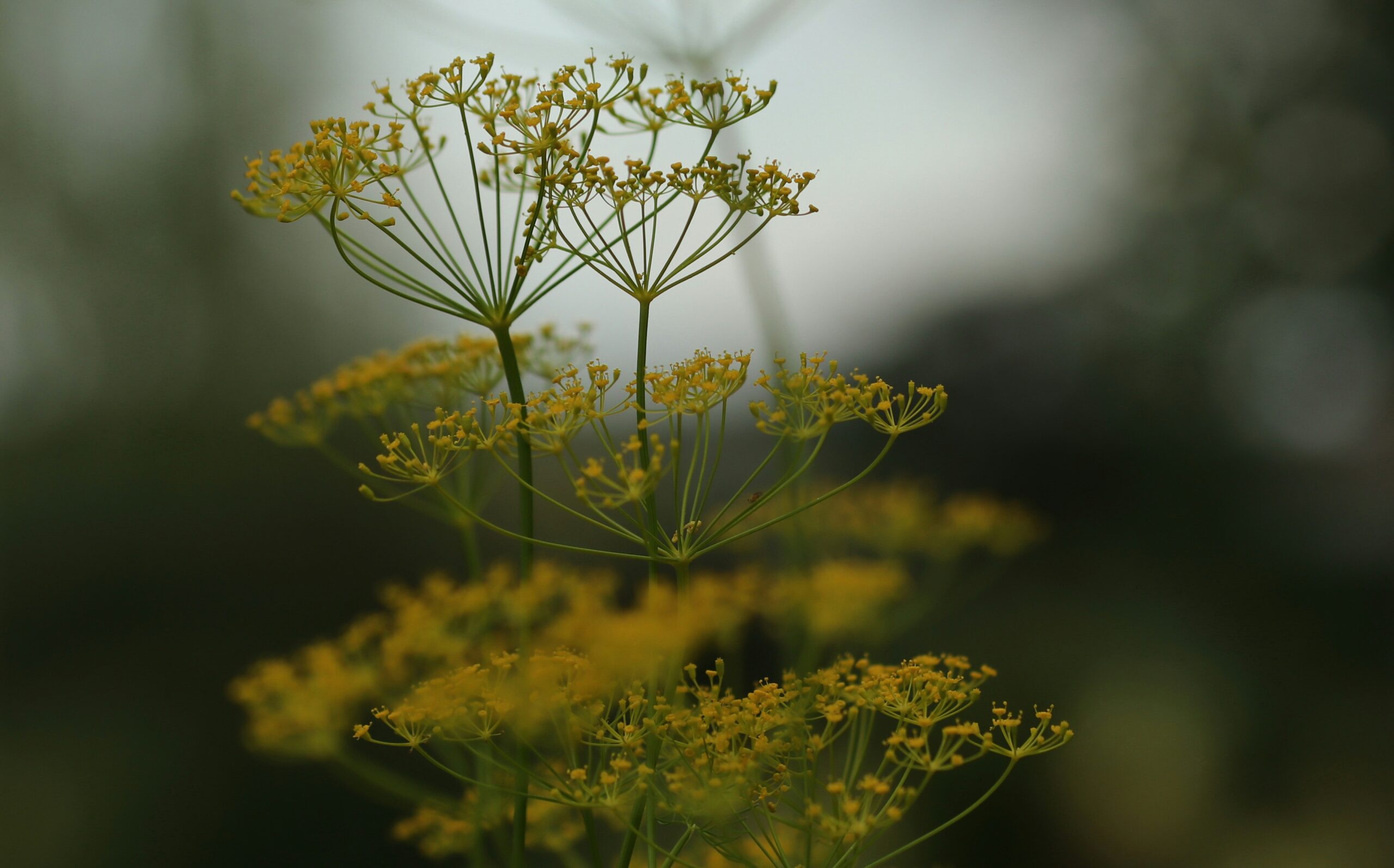
Culinary herbs and spices are some of the oldest food flavorings and preservative materials people use. Due to their expected and proven health advantages, herbs and spices have been part of traditional treatment since ancient times. Dill has likewise shown many properties that can be functional for health. However, this group of spices is too important, even though the daily consumption of herbs and spices is deficient compared to most other foods. Find out enough about dill today to find out why you must include it in your recipes.
Dill is a herbaceous annual from the celery family![]() . Dill has been used in traditional medicines for thousands of years. Even now, common folk and Ayurvedic medicine
. Dill has been used in traditional medicines for thousands of years. Even now, common folk and Ayurvedic medicine![]() employ dill water to remedy several health issues. Dil contains a variety of components that give it healing properties. The major minerals in dill are determined by many issues, together with the manner of dill, its variety, and its freshness, all through the flavor, the soil, the way it is grown, and how it is prepared within the kitchen.
employ dill water to remedy several health issues. Dil contains a variety of components that give it healing properties. The major minerals in dill are determined by many issues, together with the manner of dill, its variety, and its freshness, all through the flavor, the soil, the way it is grown, and how it is prepared within the kitchen.
Unique chemical compounds in dill also add their aromas and flavors to the plant. In this text, we will summarize published studies on health benefits you may gain by consuming dill in a reader-friendly manner.
Like other plants, dill contains anti-inflammatory and antioxidant properties that prevent many diseases, including cancer. Dill essential oils can be utilized as an anticancer agent due to their ability to reduce the viability of cancer cells. Plants also contain many active components that make cancer cells less toxic. Dill components with biological and anticancer activities might represent a potential source for developing these life-threatening diseases, but more investigation should be performed.
The results of this study indicate that dill may be introduced to herbal medicine as an appropriate edible plant and an effective agent for the prevention and management of diabetic complications. Different concentrations of dill extract have potential antioxidant activity; therefore, they can be helpful for diabetic patients. Blood glucose is significantly decreased in the dill-treated group compared to the control group with the dill extract solution. Moreover, dill powder supplementation significantly reduced mean serum insulin levels in other studies. But if you are on diabetes medication, please consult your doctor before taking this spice.
One more amazing thing is that it has the right to be added to meals that you are eating if you are overweight or obese individuals. Consuming dill could shield against these problems, connected to a higher risk of several illnesses. Studies have shown that patients' consumption of large amounts of this seed extract over time has led to remarkable weight loss![]() .
.
This is great because the plant is low-calorie, so you can incorporate it into dishes without bothering with an extra-calorie account. Its fiber also allows dill to provide the stomach with a feeling of satiety, one of the most important factors in a reduction diet. Loss of form is also facilitated by fiber, which accelerates metabolism. So next time you want to eat delicious and healthy, season your meal with some dill!
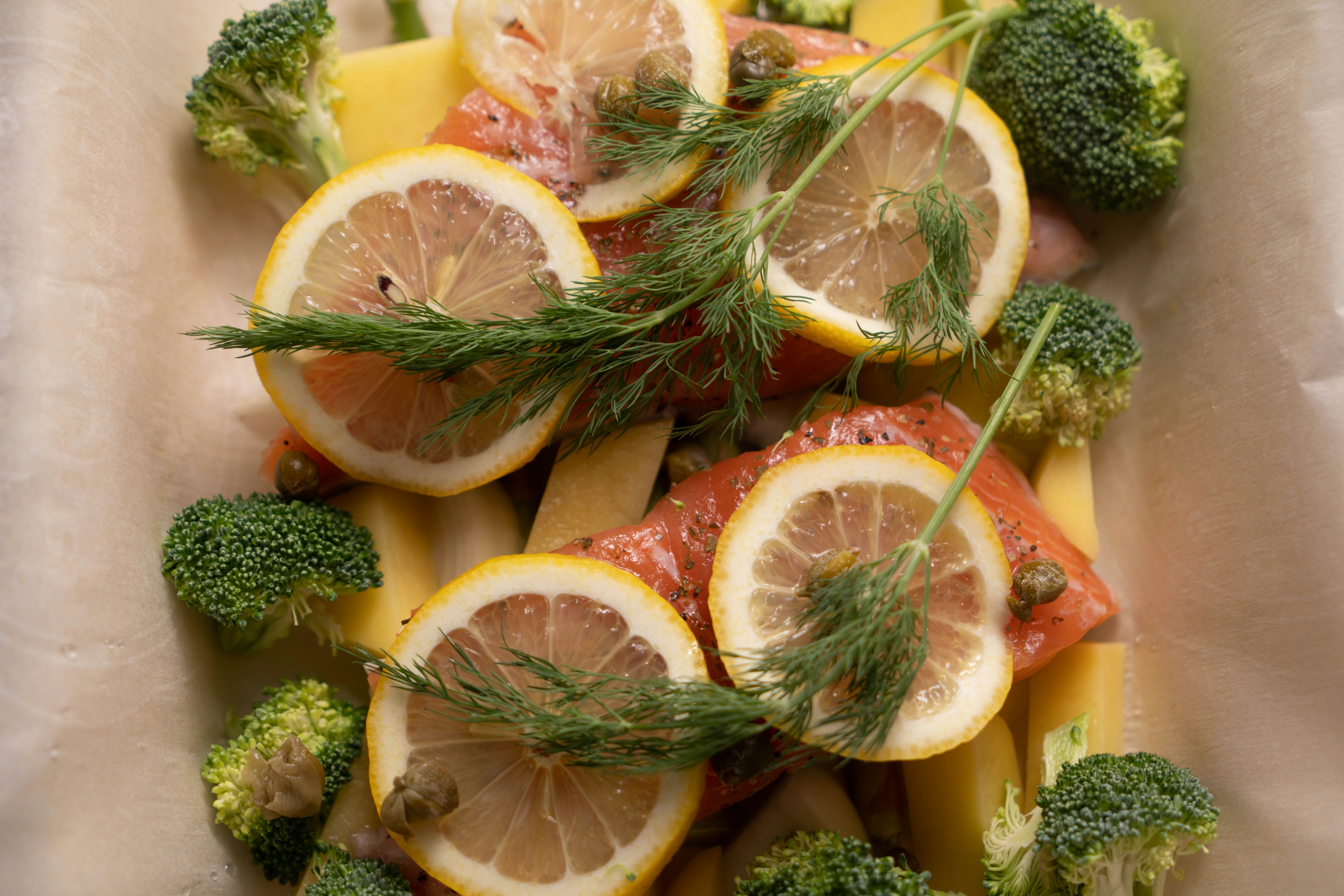
The study also indicates another valuable conclusion: dill plants may contribute postulate to their associated lipid-lowering effects. Thus, dill might be a potential cardioprotective agent. This spice can be helpful for those who have hyperlipidemia. Elevated levels of serum lipids are one of the main risk factors for atherosclerosis![]() . Different medications are used for the treatment of the illness. Herbal therapy could be an appropriate alternative to these medicines in terms of treatment duration and most side effects. So, dill should be eaten to reduce cholesterol and protect against many cardiovascular diseases.
. Different medications are used for the treatment of the illness. Herbal therapy could be an appropriate alternative to these medicines in terms of treatment duration and most side effects. So, dill should be eaten to reduce cholesterol and protect against many cardiovascular diseases.
A second healthy impact of dill on the heart and circulation is its protective functions on vessels. While remodeling and stiffening of the arterial walls are common features of normal aging, changes in elastic fibers, characterized by cessation of production and degradation of elastic fibers, begin to be noted. On the flip side, the study revealed that dill was associated with increased elastin and elastic fibers. Hence, dill extract can be described as an anti-aging drug for the cardiovascular system. So, this plant can also benefit the heart and blood vessels.
On the other hand, the general effects of dill on the brain are better documented by science. Experts say dill oil holds promise as a memory and cognition enhancer, principally for women who have gone through menopause. Several studies highlighted the action of plants against memory dysfunction in old age. It could be related to its antioxidant activity, which could be indirectly inferred since the hippocampus was noted as an affected organ and possibly other mechanisms.
This is why dill is neuroprotective and may be important to protect against neurodegeneration associated with Alzheimer's disease![]() . So, it can be claimed that the plant could be a natural medicine for the management of applications of synthetic drugs in the management of Alzheimer's disease and its complications.
. So, it can be claimed that the plant could be a natural medicine for the management of applications of synthetic drugs in the management of Alzheimer's disease and its complications.
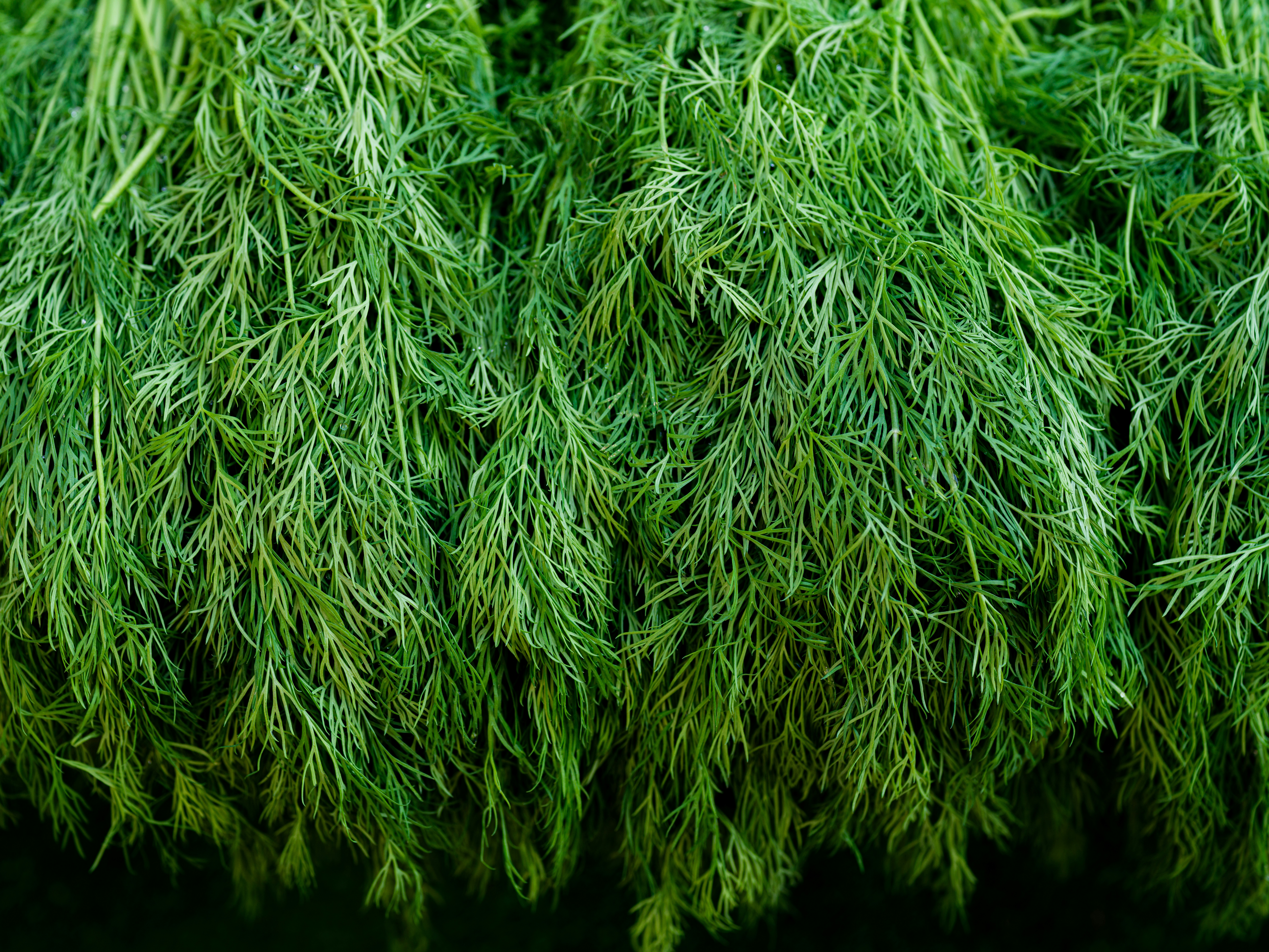
The digestive system is a complex system of organs. Food enters through the mouth and goes through the rest of the body. Even oral health is supported by dill, which has different activities throughout the digestive system. Dill's antibacterial action helps prevent infections in the mouth. In contrast, its antioxidants help reduce free radicals that cause damage to the gums and teeth, which is why dill is sometimes used in mouthwashes.
Dill seeds also offer a remedy for indigestion. Extracts of the plant seeds have shown a highly protective and antisecretory action on the gastric mucosa. So, herbal medicine can also be a good alternative medicine for the treatment of IBS irritable bowel syndrome![]() .
.
Dill can also be beneficial for your liver. Studies have shown that the use of dill significantly reduces the markers of liver damage. The data demonstrated that the administration of dill significantly reduced liver fatness and oxidative stress, with the extract being more powerful than its commercially available pills. Liver problems can also result from several factors, such as unhealthy food. And for this reason, it is worth changing some dietary habits, for example, by adding dill to the dishes.
Dill is also used in cosmetics as well. Dill oil is often added to cleansing gels and shampoos, in particular. In skin care, its effects are extensive. It has anti-inflammatory, skin-firming, and regenerative properties. Moreover, the plant has compounds with skin-whitening effects![]() . As a result, it can be employed in different forms of discoloration. Thus, dill is a handy spice that gives a taste to the food and is a valuable additive for cosmetic purposes. You can practice this in your skincare routine.
. As a result, it can be employed in different forms of discoloration. Thus, dill is a handy spice that gives a taste to the food and is a valuable additive for cosmetic purposes. You can practice this in your skincare routine.
Dill is a popular spice herb found in our kitchen, an ingredient that can be quickly added to numerous dishes and preparations. The plant can be consumed as food fresh and dried as a condiment. Additionally, dill oils and additional dietary supplements use herbal components. Dill is excellent in nutritional content. It is low in calories, which can be good news for most people. Fresh dill only has 43 kcal/100 g![]() .
.
Dill is a source of carbohydrates and protein and also provides little fat. The fundamental components needed for energy It may be no coincidence, though, that dill also has some excellent amounts of fiber; most of the health benefits figs boast are attributed to the digestive system. Besides, dill is also rich in nutrients necessary for the human organism. Keep reading and learn more, and then you can eat better.
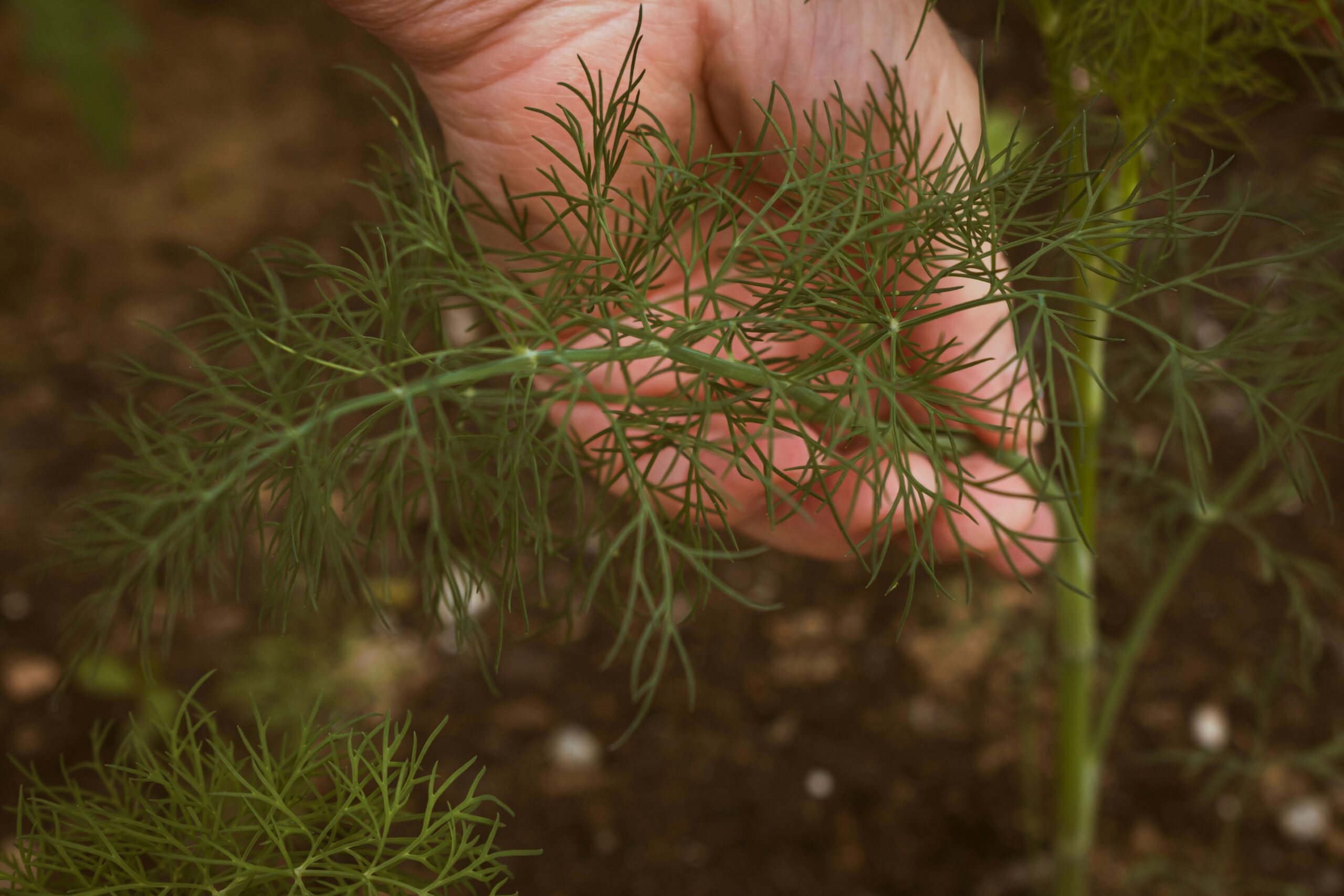
Dill is used in many culinary dishes; you will find a bag of vitamins based on its edible parts. And you will have likely heard that these are all key ingredients for good health. Well, we can have vitamin A in the plant, among others. Fortunately, dill delivers huge doses of this vitamin, so there can be no doubt about the daily provision. Moreover, dill offers several important B vitamins and high amounts of vitamin C. So eating dill is worth it to get the needed vitamins!
Minerals represent another vital category of substances for human health. Dill offers us a variety of minerals, so that is a positive note. These green leaves have sufficient iron to prevent anemia-related illnesses. We will also have good amounts of calcium, magnesium, and potassium. So, eating dill is also beneficial in terms of minerals.
Leafy vegetables, including those utilized as spices, are particularly important due to their biologically active compound content. The intense scent of the plant is due to a high number of volatile compounds within it. Chlorophyll pigments are responsible for the color intensity and different shades of dill. Green plants have chlorophyll pigments supplemented by carotenoids, which impact the color and increase vitamin content in the plant. This only applies to beta-carotene![]() .
.
Dill seeds and leaves also contain polyphenolic compounds and essential oils. Polyphenols are primarily naturally occurring in plants and are responsible for their incredibly rich health-beneficial properties. Essential oils also have interesting properties and can be distilled from the plant, inhaled, etc.
Many studies show that dill is one of the more nutritious plants, so it is a healthy ingredient to add to your dishes. There is no need to persuade you to good ol' dill. But before you do that, one question remains: Is dill a safe plant? Even if the product has a high chance of being beneficial, there is always cause for concern when it starts to be misused or overused. We also suggest that when in doubt, consult with a physician.
Dill and its products (such as oil) are considered safe. Detailed information on the safety of specific components of dill, such as carvone and limonene, has raised concerns, but they have successfully undergone safety assessment tests. However, there are some side effects of dill and contraindications that you need to respect. Further studies must also be conducted about the effects of specific dill ingredients, dosages, and dill-related hormonal changes![]() .
.
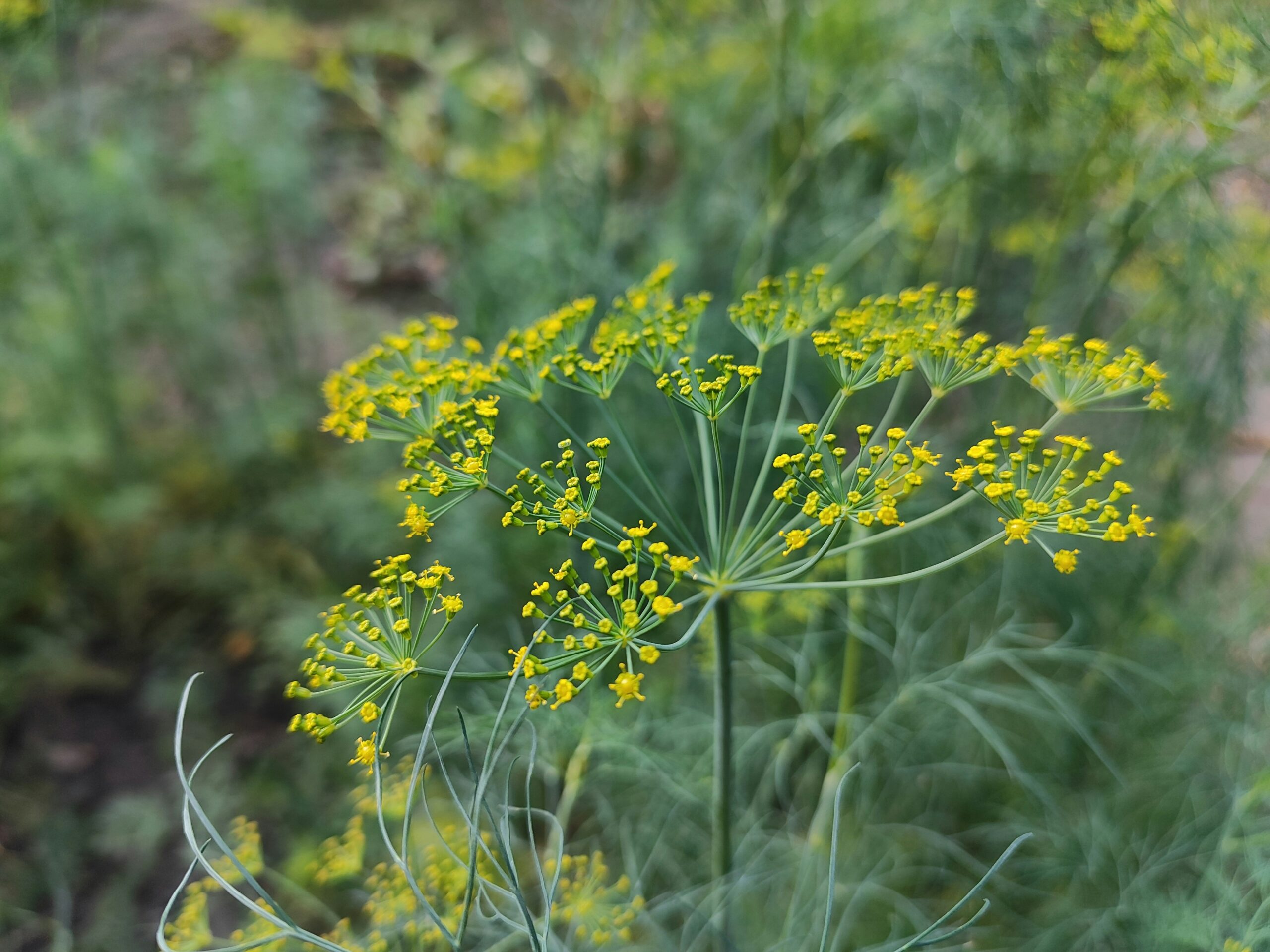
Dill or dill preparations are an over-the-counter remedy for colicky infants in some areas. However, concerns that routine administration of this plant can delay the initiation of breastfeeding and predispose infants to postnatal infection, allergies, and gut hypermobility have also been raised. So children under two years old or newborns shouldn't eat dill. Do not leave them suffering from health problems. Dill in its fresh state or other ways of serving dill can only be safely eaten by older children.
Pregnant women should also refrain from using dill. It can also be risky for them since it can lead to abortion. The components present in the dill cure many menstrual issues in women, but they are lethal during pregnancy. Sometimes, dill seeds have also been utilized during delivery to hasten the process and alleviate anxiety and pain symptoms. This plant should also not be eaten by breastfeeding women. So, this is classified as a high-risk herb while breastfeeding. For this reason, it is advised to stay clear of dill and dill products.
Dill has also been reported for its contact allergenicity. Dill can cause skin irritation if applied to the skin as part of cosmetics. It can also be a food allergy, but they are rare. However, allergic symptomatology to spices and herbs is mostly mild, although anaphylactic reactions occur. As for the allergic attack, symptoms such as rhinitis, itching of the mouth, swelling of the tongue and throat, hives, vomiting, and diarrhea after eating dishes prepared with dill can be seen. That means proceed with caution.